

Prof. Sanjay Bakshi’s USP is that he is a very clear headed thinker. Also, when he makes a point, he thoroughly researches the topic and considers all pros and cons in an objective manner before reaching a conclusion.
This time, the Professor deals with a dilemma that every investor faces – should he buy stocks of top quality companies like Nestle, Asian Paints or ITC where the valuations are sky-high and scope for future appreciation appears bleak or should he buy stocks of companies that are quoting at low valuations, in the hope that the fortunes of these companies will change in the future.
Most investors will instinctively opt for the latter because there is a deep-rooted fear that buying stocks quoting at high PE ratios is a “risky and speculative” affair which offers little scope for future gains.
In his latest article “What Happens When You Don’t Buy Quality?; And What Happens When You Do?” Prof. Sanjay Bakshi argues that these investors are making a huge mistake by looking at the present valuations to avoid buying top quality stocks.
Bakshi proves with examples taken from several top-performing companies like Nestle, Asian Paints, Colgate, ITC, Bosch and Shriram Transport that buying the stocks of these companies, even when they were quoting at high valuations, would have proved very profitable for investors.
Despite their high P. E. ratios, these stocks have given super-duper multibagger gains over the years, outperforming the stocks of companies which are not of the same quality.
The Prof explains that the reason for this peculiar state of affairs is that evidence shows that a great business tends to remain a great (or good business) over a period of time and that the risk that it would end up in the economic doghouse is remote.
In contrast, over a period of time, a poor business tends to remain poor or becomes slightly better but still remains below average. There is a low chance that a business in the economic doghouse ends up in the best category, he says.
Bakshi points out that one of the foremost believers in the theory that good businesses will remain good (and investors should only focus on those) and that bad businesses would remain bad (and investors should avoid those) is Warren Buffett.
Warren Buffett, Sanjay Bakshi says, has abandoned the classic “Graham & Dodd cigar-butt investing style” of finding cheap stocks and instead now buys stocks that are overwhelmingly likely to succeed (even if that is reflected already in the price). Warren Buffett isn’t the “venture capital” type of investor but is the “high-probability-of-success type” of investor, the Prof. says.
Bakshi quotes from Warren Buffett where he calls the “bargain-purchase“/ “cigar butt” approach “foolish” and instead advises investors that “it’s far better to buy a wonderful company at a fair price than a fair company at a wonderful price”.
The Prof. also explains that when you look at a stock and you consider it to be “expensive”, you are under-pricing the stock in the misconception that what is an outstanding business today would deteriorate and become average in the foreseeable future. However, this is generally not true he says. A wonderful business generally continues to be wonderful in the future as well.
To prove his point, Bakshi quotes a noted economist “More profitable companies today tend to be more profitable companies tomorrow. Although it gets reflected in their future stock prices, the market systematically underestimates this today, making their shares a relative bargain – diamonds in the rough”.
The other interesting point made by the Prof. is that the highest persistence of excellent performance is to be found in sectors like household and personal products, food, beverage and tobacco, food and staples retailing, hotels, restaurants and leisure and not in real estate and high-technology businesses. The reason for this is because the former businesses are relatively recession proof.
When you buy a stock with a high ratio of price to book value, a high price-earnings ratio, and a low dividend yield, you may still be making a “value” purchase, the Prof. says, if the company is engaged in a wonderful business.
So, the bottom line of the thesis is that Prof. Sanjay Bakshi urges us to adopt Warren Buffett’s style of looking for businesses having enduring competitive advantages backed by demonstrated consistent earning power and high ROEs.
When we do find such a business, we should not discount very long duration moats heavily and we should abandon dumb anchors like P/E multiples, and all-time high stock prices and we should stop worrying that the price is “expensive”, he says.
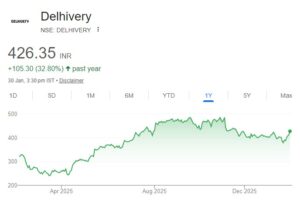
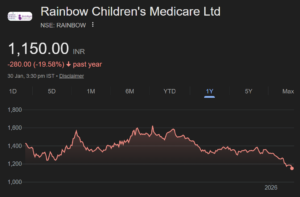
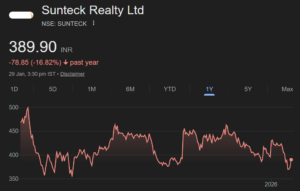
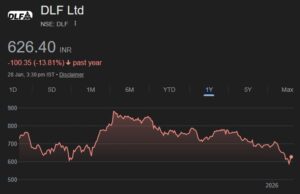
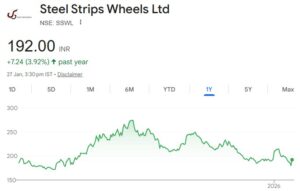
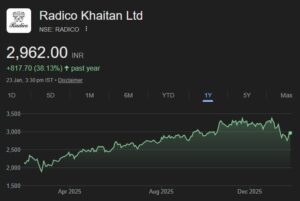
17-10-2013
Sir,
Thanks for very useful advice like this and earlier.
I do agree.but one should not by any blue chip also at any rate.suppose u Deside to add TCS, wait till it’s 3months LOW or 1year LOW.so one should keep watch on bad news.I feel Wockhard is worth for longterm.
What about stocks turning bad over night like Satyam, Gitanjali gems, Financial Technologies.. Govt tweek rules to favor corporated latest being 4G voice calling to Relienace Industried Ltd… In India every thing is fake given lack of accountability be it political or corporate.. safest to invest in foreign MNC’s and pray that you dont loose money like in ABB/Enron’s 🙂